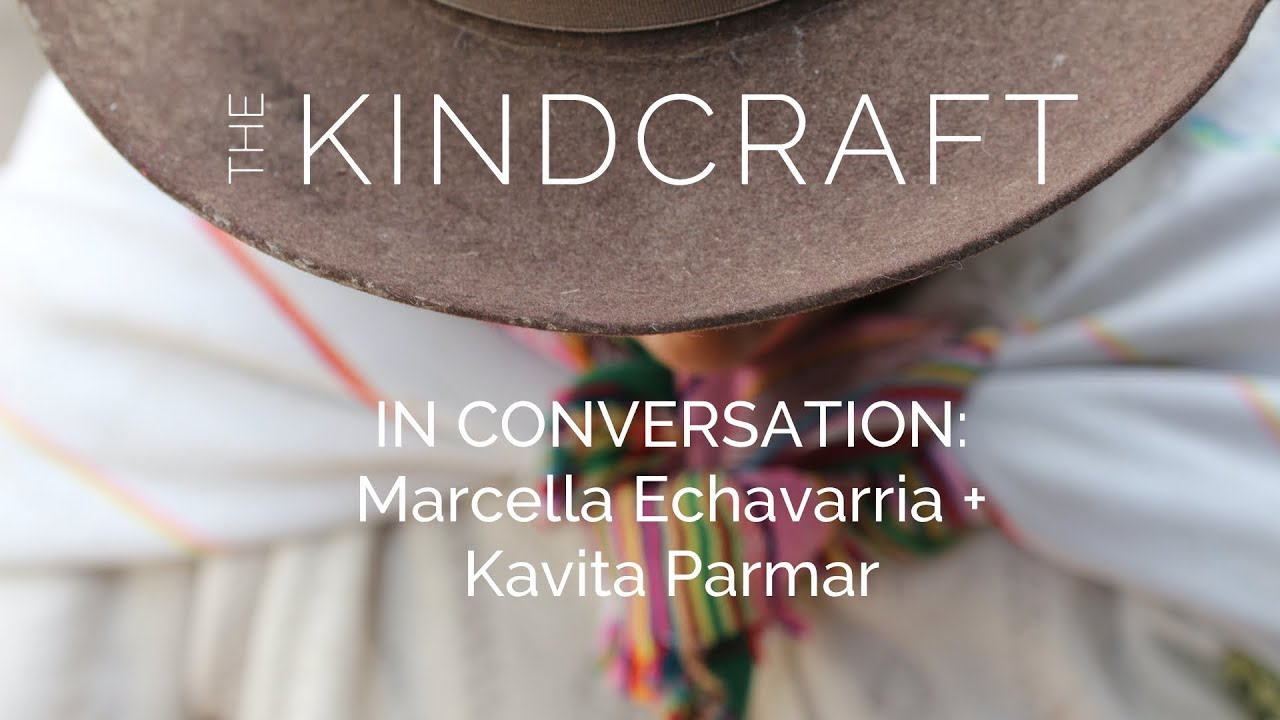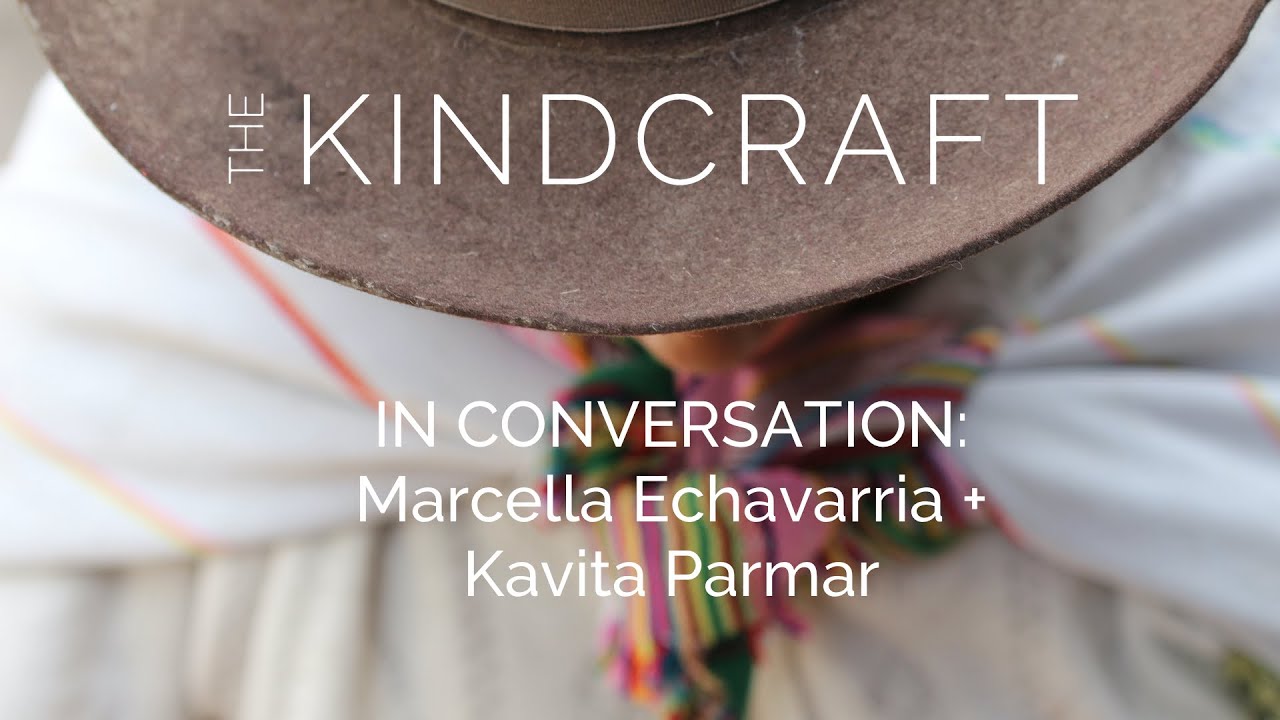THE KINDCRAFT hosted a three-part conversation LIVE with Marcella Echavarria and Kavita Parmar. All the episodes are collected here and you can ask them questions below!
Session One: Where Do We Come From? was a 30 minute discussion of the PAST on Thursday, April 23rd.
Session Two: What Are We? was a 30 minute discussion of the PRESENT on Tuesday, April 28th.
Session Three: Where Are We Going? was a 30 minute discussion of the FUTURE on Thursday, April 30th.
=====
Marcella Echavarría (@marcella) is currently living in Mexico City running a branding consulting firm focused on sustainable luxury. Marcella has been a consultant for UNESCO, the United Nations, IDB, the OAS, and many leading brands related to textiles, tourism and sustainability. Together with Kavita Parmar, she created XTANT.IO, a global platform for content and commerce for the handmade. Her work with artisanal communities has been the subject of hundreds of articles and recognitions including the prestigious “Architect of the Future 2012” award. She recently co-edited Selvedge Mexico. She is also a photojournalist specializing in textiles.
Kavita Parmar (@Kavita_Parmar) is a recognized activist and speaker from India living in Spain. Kavita uses design as a tool to express her point of view on the current situation of the fashion system, where individuals have lost their identity as creators in the midst of the unbridled race towards mass production and consumerism. The IOU Project stands out among her multiple ventures, a platform dedicated to representing and giving a voice to more than 250 weavers of the 200,000 members of the cooperative of Madras, India. She is a consultant for companies like Nike, Ikea and Levis, as well as the Government of India. Kavita has received countless awards such as UNSCC Leadership Award, Luxury Briefing Award for Innovation, SOURCE Award from Ethical Fashion Forum London, Sustainable Luxury Award Latin America, etc.
The conversation was moderated by Lauren K Lancy (@Lauren), a design consultant and founder of THE KINDCRAFT who lives in Los Angeles, California.
=======
Editor’s Note: XTANT is a separate organization from TEXTO and neither it, nor its owners, are affiliated with TEXTO, Cesar Cervantes, or Fundacion Cultural Tetetlan, AC.

